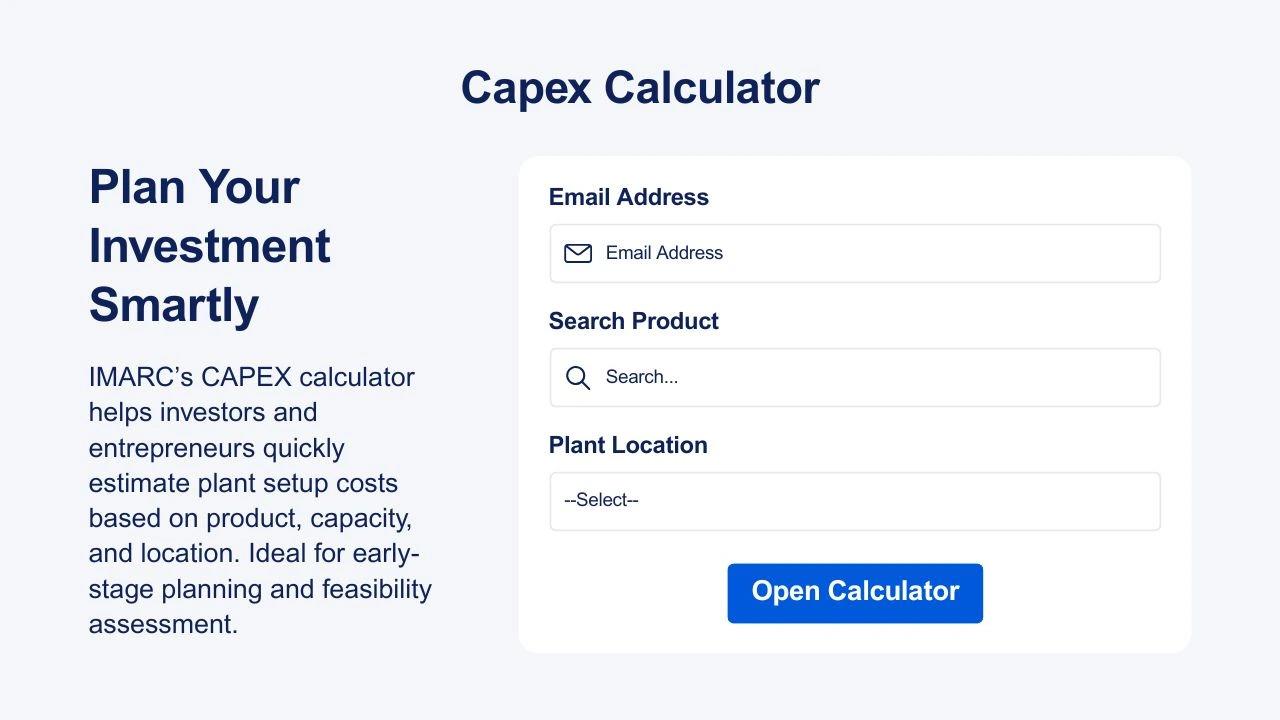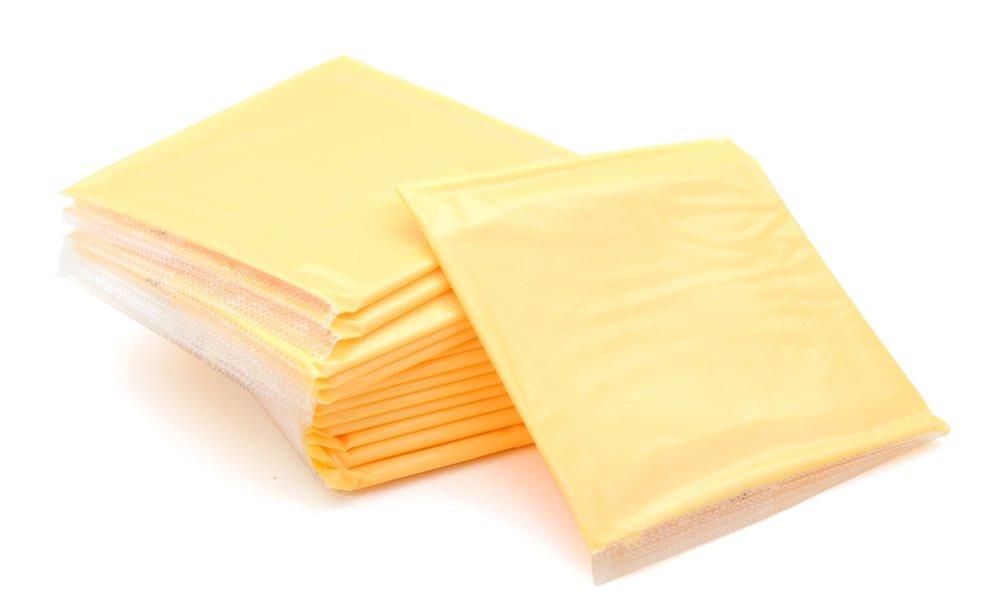
Processed Cheese Slices Manufacturing Plant Cost Report 2025: Packaging And Raw Material Requirements
Setting up a processed cheese slices manufacturing plant involves securing food-grade machinery for blending, cooking, slicing, and packaging, along with a consistent supply of quality raw materials. Compliance with food safety standards, skilled labor, and efficient distribution channels are essential for commercial success.
Request for Sample Report: https://www.imarcgroup.com/processed-cheese-slices-manufacturing-plant-project-report/requestsample
IMARC Group's “Processed Cheese Slices Manufacturing Plant Project Report 2025: Industry Trends, Plant Setup, Machinery, Raw Materials, Investment Opportunities, Cost and Revenue” offers a detailed and practical guide for entrepreneurs and businesses looking to enter the manufacturing industry. The report includes in-depth analysis of capital investment requirements, project financing options, working capital needs, and projected returns.
This comprehensive business plan outlines every critical step involved in setting up a successful manufacturing plant unit from understanding the industry landscape to planning for real-world challenges. It provides valuable insights into essential components such as processed cheese slices manufacturing plant cost, machinery cost, operating cost, raw material requirements, utility needs, infrastructure setup, and packaging logistics.
Processed Cheese Slices Industry Outlook 2025:
The processed cheese slices industry in 2025 is projected to witness steady growth, driven by rising demand from quick-service restaurants, increasing urbanization, and consumer preference for convenient, ready-to-use dairy products. Technological advancements in processing and packaging are enhancing product shelf life and quality, while fortified and low-fat variants are catering to health-conscious segments. Emerging markets in Asia-Pacific and the Middle East are expected to offer significant expansion opportunities, supported by changing dietary habits and growing disposable incomes. Competitive differentiation will hinge on innovation, flavor diversity, and sustainable packaging solutions.
Key Insights for Processed Cheese Slices Manufacturing Plant Setup:
Detailed Process Flow:
-
Product Overview
Unit Operations Involved
Mass Balance and Raw Material Requirements
Quality Assurance Criteria
Technical Tests
Project Details, Requirements and Costs Involved:
-
Land, Location and Site Development
Plant Layout
Machinery Requirements and Costs
Raw Material Requirements and Costs
Packaging Requirements and Costs
Transportation Requirements and Costs
Utility Requirements and Costs
Human Resource Requirements and Costs
Capital Expenditure (CapEx) and Operational Expenditure (OpEx) Analysis:

Project Economics:
-
Capital Investments
Operating Costs
Expenditure Projections
Revenue Projections
Taxation and Depreciation
Profit Projections
Financial Analysis
Profitability Analysis:
-
Total Income
Total Expenditure
Gross Profit
Gross Margin
Net Profit
Net Margin
Key Cost Components of Setting Up a Processed Cheese Slices Plant:
-
Land and Building – Purchase or lease of industrial land, construction of production facilities, storage, and utility areas.
Machinery and Equipment – Blending units, cheese cookers, slicers, conveyors, cooling systems, and automated packaging lines.
Raw Materials – Natural cheese, milk solids, emulsifiers, stabilizers, flavors, and packaging materials.
Utilities – Electricity, water, refrigeration, steam generation, and waste treatment systems.
Labor Costs – Skilled technicians, machine operators, quality control staff, and administrative personnel.
Regulatory Compliance – Licensing, food safety certifications, and environmental permits.
Transportation and Logistics – Distribution vehicles, cold chain infrastructure, and warehousing.
Working Capital – Initial inventory, operational expenses, and contingency reserves.
Economic Trends Influencing Processed Cheese Slices Plant Setup Costs 2025:
-
Raw Material Price Volatility – Fluctuations in milk and natural cheese prices due to global dairy supply-demand dynamics and feed costs.
Energy and Utility Costs – Rising electricity, fuel, and water expenses impacting operational budgets.
Labor Market Conditions – Wage inflation and skilled labor shortages affecting staffing costs.
Packaging Material Costs – Increased prices for plastics and sustainable alternatives driven by environmental regulations.
Currency Exchange Rates – Impact on imported machinery, additives, and ingredients for countries reliant on foreign suppliers.
Interest Rates and Financing – Higher borrowing costs influencing capital investment decisions.
Government Policies and Tariffs – Trade restrictions, subsidies, or import duties altering cost structures.
Inflationary Pressures – General inflation raising the cost of construction, transportation, and other operational inputs.
Challenges and Considerations for Investors in Processed Cheese Slices Plant Projects:
-
High Initial Capital Investment – Significant expenditure required for land, machinery, and setup before revenue generation.
Regulatory Compliance – Strict adherence to food safety, hygiene, labeling, and environmental standards.
Quality Control – Maintaining consistent texture, flavor, and shelf life across large-scale production.
Supply Chain Dependence – Reliance on steady availability of dairy raw materials and additives.
Market Competition – Presence of established brands and private labels exerting price and quality pressure.
Consumer Preference Shifts – Growing demand for healthier, low-fat, and organic alternatives.
Operational Efficiency – Need for skilled labor, modern equipment, and optimized production processes.
Economic Volatility – Impact of inflation, currency fluctuations, and changing trade policies on profitability.
Request for Customization: https://www.imarcgroup.com/request?type=report&id=13038&flag=E
Conclusion:
The processed cheese slices industry presents significant growth potential in 2025, supported by evolving consumer lifestyles, expanding food service sectors, and technological advancements in production and packaging. However, establishing a manufacturing plant requires careful planning, substantial capital investment, and strict compliance with regulatory standards. Success in this sector depends on securing reliable raw material sources, maintaining consistent quality, and adapting to shifting consumer preferences toward healthier and more sustainable products. Investors who strategically address cost drivers, operational challenges, and market competition can position themselves to capitalize on both domestic demand and emerging export opportunities.
About Us:
IMARC Group is a global management consulting firm that helps the world's most ambitious changemakers to create a lasting impact. The company excel in understanding its client's business priorities and delivering tailored solutions that drive meaningful outcomes. We provide a comprehensive suite of market entry and expansion services. Our offerings include thorough market assessment, feasibility studies, company incorporation assistance, factory setup support, regulatory approvals and licensing navigation, branding, marketing and sales strategies, competitive landscape, and benchmarking analyses, pricing and cost research, and procurement research.
Contact Us:
IMARC Group
134 N 4th St. Brooklyn, NY 11249, USA
Email: sales[@]imarcgroup.com
Tel No:(D) +91 120 433 0800
United States: (+1-201971-6302)
Legal Disclaimer:
MENAFN provides the
information “as is” without warranty of any kind. We do not accept
any responsibility or liability for the accuracy, content, images,
videos, licenses, completeness, legality, or reliability of the information
contained in this article. If you have any complaints or copyright
issues related to this article, kindly contact the provider above.

















Comments
No comment